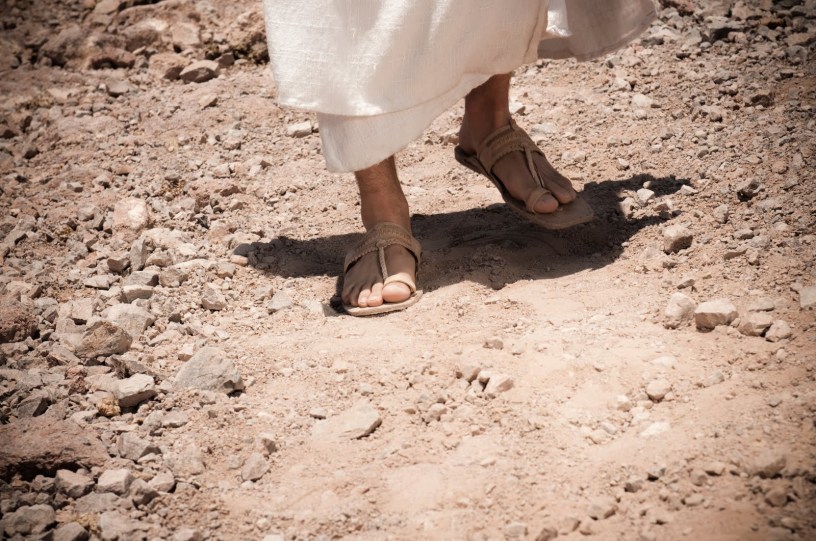How much faith do you have? And when you ask for things in prayer–with “faith”–is it to proclaim the goodness of God? Or is it just to satisfy needs? This is a Bible Study based on a sermon I heard a year or so back, that brings some more truth to what faith really should be.
* * *
There is a peculiar word whose meaning I would love to share with you.
It is the Hebrew word for “corner [of garment]” = ḵânâp (Strong’s number: h3671). It is used many times in the OT (Old Testament). Such as in the following verse:
The Lord said to Moses, “Speak to the people of Israel, and tell them to make tassels on the corners of their garments throughout their generations, and to put a cord of blue on the tassel of each corner. And it shall be a tassel for you to look at and remember all the commandments of the Lord, to do them, not to follow after your own heart…so you shall be holy to your God” (Numbers 15:37-40)
In the text above, God instructed the Israelites to trim or edge their robes with blue, and at the corner (extremity) of their robes add a tassel. This was for the purpose of remembering the Lord’s commandments.
One thing of interest is that the word ḵânâp is the same word is used to denote wings, either literal (like for birds and angels) or figurative, like the border or edge of a tunic or robe, as is used in the passage.
As the OT is about to come to an end, the word appears again. This time it is part of one of the most beautiful promises pointing to the coming of the Messiah.
But for you who fear my name the sun of righteousness shall rise with healing in its wings. (Malachi 4:2)
And the word for “wings”? Yes it is ḵânâp.
- How would you interpret the meaning of this verse?
- Would you take the literal or figurative meaning of the word ḵânâp?
Now if we take the word’s literal meaning, we could say that Messiah would rise like a (figurative) bird, with healing in its wings. It’s poetic and lovely, and I think most people would interpret it this way.
But here’s an alternate way of looking at it. For that we need to go to the NT, and read about a particular event in Jesus’ life.
While [Jesus] was saying these things to them, behold, a ruler came in and knelt before him, saying, “My daughter has just died, but come and lay your hand on her, and she will live.” And Jesus rose and followed him, with his disciples. And behold, a woman who had suffered from a discharge of blood for twelve years came up behind him and touched the fringe of his garment, for she said to herself, “If I only touch his garment, I will be made well.” (Matthew 9:18-21)
Obviously the language changes to Greek in the New Testament, but the word used for fringe still carries the meaning. “Fringe” used here (Strong’s number g2899), also means the same as ḵânâp “wing” “corner”, and “tassel.” Furthermore, Strong’s emphasizes this connection between the word as found in the NT and its OT counterpart ḵânâp.
* * *
But for you who fear my name the sun of righteousness shall rise with healing in its wings. (Malachi 4:2)
- What happens if we take instead the message of Malachi as it comes: that is, the Messiah rises, and healing can be found at the corner of his garment?
- How does that throw new light into the motivation of the woman who touched Jesus’ garment?
The woman’s act of bending down to ground level and touching the corner of his garment was not borne out of her timidity or shame at her situation (well, obviously there was some of that—but she could have also touched his back, his long hair, or his sandal if it only came to that). Her choice of touching the edge of his robe was far from arbitrary, for she remembered from the promise that the Messiah would bring healing in the corners of his garment.
Her act of faith is now seen for what it really was: It was her way of proclaiming to the world that Jesus was The Messiah which the prophets had spoken of.
Not many people in his days easily made the connection between prophecy of the coming Messiah and Jesus. In fact, most people missed the point. Is it any wonder Jesus wanted to stop and find her—and give recognition for what she had done? Is it any wonder that she is the only one of the women for whom it was ever recorded that he called “Daughter”?
For if we ask for miracles, shouldn’t their main purpose be to proclaim the goodness of God?
—
Based on a sermon by Pastor Garrett Speyer







